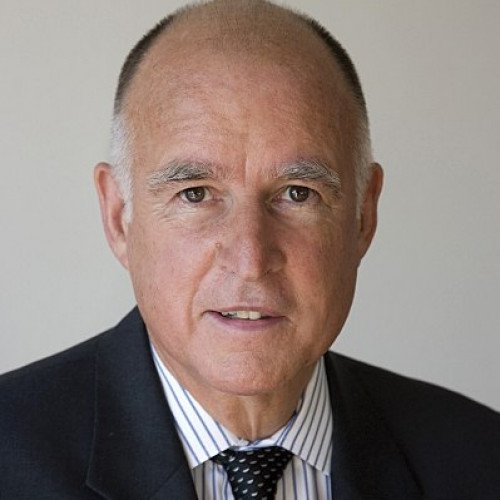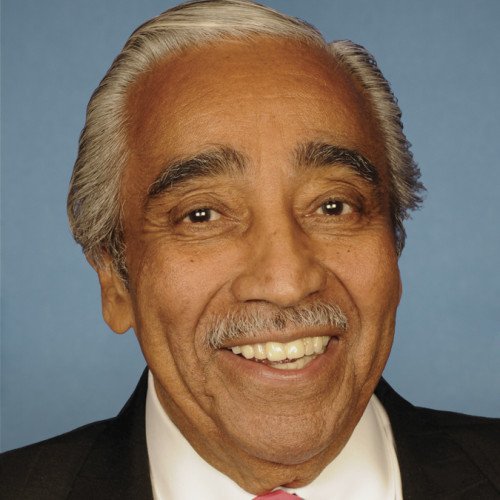Jerry Brown VS Charles B. Rangel

Jerry Brown
Edmund Gerald Brown Jr. (born April 7, 1938) is an American politician who served as the 34th and 39th governor of California from 1975 to 1983 and 2011 to 2019. A member of the Democratic Party, he was elected Secretary of State of California in the early 1970s; Brown later served as Mayor of Oakland from 1999 to 2007 and Attorney General of California from 2007 to 2011. He was both the oldest and sixth-youngest governor of California due to the 28-year gap between his second and third terms. Upon completing his fourth term in office, Brown became the third longest-serving governor in U.S. history, serving 16 years and 5 days in office.Born in San Francisco, he was the son of Bernice Layne Brown and Pat Brown, who was the 32nd Governor of California (1959–1967). After graduating from the University of California, Berkeley and Yale University, he practiced law and began his political career as a member of the Los Angeles Community College District Board of Trustees (1969–1971). He was elected to serve as the 23rd Secretary of State of California from 1971 to 1975. At 36, Brown was elected to his first term as governor in 1974, making him the youngest California Governor in 111 years. In 1978, he won his second term. During his governorship, Brown ran unsuccessfully as a candidate for the Democratic presidential nomination in 1976 and 1980. He declined to pursue a third term as governor in 1982, instead making an unsuccessful run for the United States Senate that same year. After traveling abroad, he returned to California and served as the sixth Chairman of the California Democratic Party (1989–1991), attempting to run for U.S. President once more in 1992. He then moved to Oakland, where he hosted a talk radio show; Brown soon returned to public life, serving as Mayor of Oakland (1999–2007) and Attorney General of California (2007–2011). He ran for his third and fourth terms as governor in 2010 and 2014, his eligibility to do so having stemmed from California's constitutional grandfather clause. On October 7, 2013, he became the longest-serving governor in the history of California, surpassing Earl Warren.
Statistics for this Xoptio

Charles B. Rangel
Charles Bernard Rangel (; born June 11, 1930) is an American politician who was a U.S. Representative for districts in New York from 1971 to 2017. A member of the Democratic Party, he was the second-longest serving incumbent member of the House of Representatives at the time of his retirement, serving continuously since 1971. As its most senior member, he was also the Dean of New York's congressional delegation. Rangel was the first African-American Chair of the influential House Ways and Means Committee. He is also a founding member of the Congressional Black Caucus. Rangel was born in Harlem in Upper Manhattan and lives there to this day. He earned a Purple Heart and a Bronze Star for his service in the U.S. Army during the Korean War, where he led a group of soldiers out of a deadly Chinese army encirclement during the Battle of Kunu-ri in 1950. Rangel graduated from New York University in 1957 and St. John's University School of Law in 1960. He then worked as a private lawyer, Assistant U.S. Attorney, and legal counsel during the early-mid-1960s. He served two terms in the New York State Assembly, from 1967 to 1971, and then defeated long-time incumbent Congressman Adam Clayton Powell Jr. in a primary challenge on his way to being elected to the House of Representatives. Once there, Rangel rose rapidly in the Democratic ranks, combining solidly liberal views with a pragmatic approach towards finding political and legislative compromises. His long-time concerns with battling the importation and effects of illegal drugs led to his becoming chair of the House Select Committee on Narcotics, where he helped define national policy on the issue during the 1980s. As one of Harlem's "Gang of Four", he also became a leader in New York City and State politics. He played a significant role in the creation of the 1995 Upper Manhattan Empowerment Zone Development Corporation and the national Empowerment Zone Act, which helped change the economic face of Harlem and other inner-city areas. Rangel is known both for his genial manner, with an ability to win over fellow legislators, and for his blunt speaking; he has long been outspoken about his views and has been arrested several times as part of political demonstrations. He was a strong opponent of the George W. Bush administration and the Iraq War, and he put forth proposals to reinstate the draft during the 2000s. Beginning in 2008, Rangel faced a series of personal legal issues focusing on ethics violations and allegations of failures to abide by the tax laws. The House Ethics Committee focused on whether Rangel improperly rented multiple rent-stabilized New York apartments, improperly used his office in raising money for the Rangel Center at the City College of New York, and failed to disclose rental income from his villa in the Dominican Republic. In March 2010, Rangel stepped aside as Ways and Means Chair. In November 2010, the Ethics Committee found Rangel guilty of 11 counts of violating House ethics rules, and on December 2, 2010, the full House approved a sanction of censure against him. During the 2012 and 2014 elections, Rangel faced two strong primary challenges in a now primarily Hispanic district but prevailed. He did not run for re-election in 2016 and left office in January 2017.